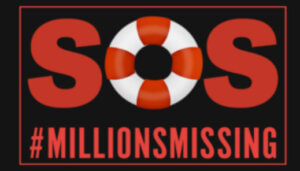The NIH Office of Extramural Research is asking for administrative supplement requests from clinical investigators interested in doing research on ME/CFS.
An administrative supplement can be utilized to gain additional funds for an active grant, so long as the items or activities requested fall within the original scope of that grant.
This could mean the addition of new assays, bioinformatics or new computational modeling approaches, or the addition of an ME/CFS cohort to a pre-existing study. The NIH suggests a variety of potential focuses for ME/CFS administrative supplement requests, including:
- An analysis of CNS-related biomarkers in new-onset versus longtime ME/CFS patients
- A study examining the use of biomarkers to help identify subgroups in ME/CFS
- Epidemiological studies concerning prevalence, pathogenesis, pathophysiology, and etiology
- Potential immunologic triggers or modifiers of immune response and immune cell metabolism
- Studies that focus on autonomic abnormalities in ME/CFS
The budget for an administrative supplement to a study would be relatively small: $150,000 or less in direct costs per year if under NIAID, and up to $100,000 in direct costs per year from each of the other institutes.
In regards to the total dollar amount that will be dedicated to the supplements, the program officers involved at NIH explained to #MEAction:
Each NIH Institute involved will review and rank the administrative supplements received, and then the Trans-NIH ME/CFS Working Group will review all of the applications to make a recommendation for funding. The actual number to be funded hasn’t been decided – it will depend on the number and quality of the applications we received.
When asked about whether the research is targeted at researchers who are already focused on ME/CFS or on researchers new to the field, they said:
The objective is to stimulate more research! So, it can be either someone already doing ME/CFS research who has an idea they would like to expand on that is related to their funded grant, or it could be someone who is developing a new technique or technology that could be applied to the study of ME/CFS.
The NIH encourages researchers who are uncertain as to whether their proposals fall under the purview of the existing grant to discuss their proposals in more depth with the head of the center under which they believe their study would be best housed; the National Institutes of Allergy and Infectious Disease (NIAID), Dental and Craniofacial Research (NIDCR), Neurological Disorders and Stroke (NINDS), Nursing Research (NINR), and the National Center for Complementary and Integrative Health (NCCIH) are each looking for additional studies.
In the teleconference last month, Vicky Whittemore from NINDS explained that the Trans-NIH Working Group’s full set of initiatives to jumpstart ME/CFS research– which should include RFAs— will be presented to the appropriate parties for approval May of this year.





4 thoughts on “NIH Calls For Additional Research Proposals to Study ME/CFS”
Hi,
Can the NIH Clarify if the total funds available are cummulative between National Institutes up too $550,000 per year?
Thank you
Hi Justin- We are trying to get confirmation from NIH, but from the announcement it appears that a single institute can give multiple supplements. Thus it is possible that the total funds could be greater than $550,000 per year depending on the number of approved applicants. As soon as we get an update we will update the article.
We got confirmation from NIH that there is not a limit to the total funds or number of grants approved. The article has been updated with NIH’s responses to our questions.
Thank you MEAction
Comments are closed.